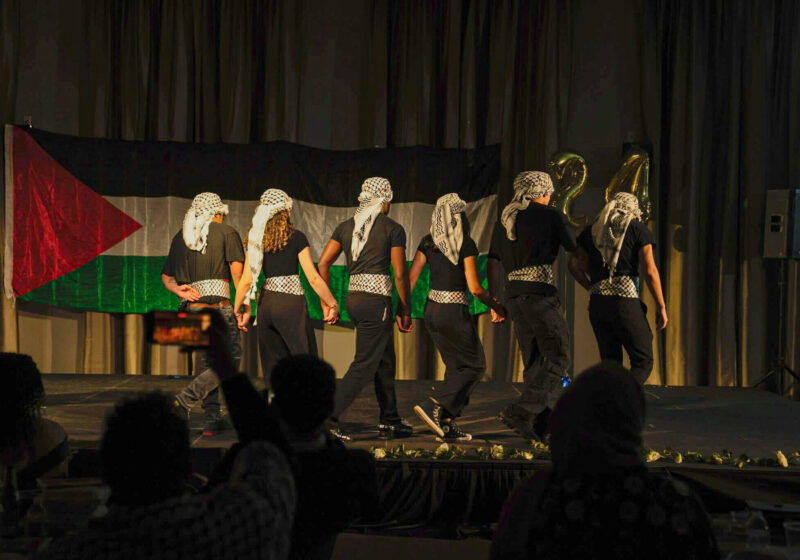Correction (11/19/19): An earlier version of this article erroneously said that Nordeen found a “lack of sympathy towards Jaeger” in the Mother Jones article and EEOC complaint. This has been changed to reflect that Nordeen found a lack of nuance in the documents, not sympathy.
Three faculty members have released letters defending Brain and Cognitive Sciences professor T. Florian Jaeger and his affiliates from the movement against him.
The writers — professors Chigusa Kurumada, Kathy Nordeen, and Michael Scott — said they hope to spark a larger initiative with more contributors providing more varied perspectives from the scandal. The three letters currently available take a sympathetic look at Jaeger in regards to the consequences of the sexual misconduct allegations against him.
“It reflects our desire — particularly in light of the [UR] Administration’s silence — to share a more nuanced and multifaceted collection of narratives than has so far been publicly available,” reads the document serving as an introduction to the individual letters.
Former faculty members suing UR for retaliation over the allegations say the letters contain falsehoods and distract from the damage done to those who accused Jaeger.
———
In her letter, which was originally published as a post on her personal Facebook page on Sept. 2, BCS professor Chigusa Kurumada — Jaeger’s domestic partner — wrote that while she believes it is important that inequality in academia be addressed, Jaeger has been “demonized,” which has had severe consequences for his affiliates.
Kurumada said in an interview that she and other associates of Jaeger experienced backlash as a result of the scandal, including intrusions on their privacy and one graduate student being kicked out of a cafe for meeting with Jaeger. She attributed this backlash to a lack of nuance in the discussion of the accusations.
“It is my belief that it’s because what people believe to be true includes a lot of misinformation [and] exaggerations,” Kurumada said.
Professor emeritus of BCS and neuroscience Kathy Nordeen wrote on the effects she said the fallout had on Jaeger’s affiliates.
“This punishment has spilled over to negatively affect his graduate students (many of them women) who have felt ostracized at conferences, had their accomplishments called into question and boycotted, and been wrongly described as willing to tolerate and support sexual harassment and predatory behavior,” she wrote in her letter.
According to her, there was a lack of nuance to the Mother Jones article that first broke the story of the accusations and to the official Equal Employment Opportunity Commission (EEOC) complaints filed by the alleged victims and their supporters. This, Nordeen wrote, created a sense of fear that could be harmful to the campus community. If students believe that the campus is protecting a sexual predator, she wrote, they will be less inclined to report if they experience or witness sexual misconduct themselves.
In his letter, Computer Science professor Michael Scott drew a distinction between Jaeger and sexual predators, saying that while Jaeger socialized inappropriately with graduate students, investigations have not found any evidence that Jaeger engaged in quid pro quo sexual harassment or non-consensual sexual contact. The University-funded Mary Jo White investigation report supported this. The complainants and their lawyers have maintained that the report mischaracterizes the facts of the situation and attacks the complainants themselves.
In an interview, Scott said that he believes most of the information students on campus have on the case comes from the Mother Jones article and the EEOC complaint, both of which he believes are biased against Jaeger. He considers the White report to be more reliable, but said that because it is so long, few people on campus have read it.
Scott’s letter also questioned the value of the complaints themselves. Scott wrote that while he knew and had respect for two of the complainants, former UR professors Richard Aslin and Elissa Newport, the EEOC filing contained “a distressing amount of exaggeration, selective editing, and missing context.”
“While these distortions may be standard practice (and even effective strategy) in the context of a legal battle,” Scott wrote, “they’ve nonetheless done a great deal of harm to the campus community.”
———
In response to Scott’s remarks, Aslin said, “It is unfortunate that the person making this comment did not take the time to meet with me to discuss my side of the situation.”
“By focusing on restoring Professor Jaeger’s reputation and alleviating the discomfort experienced by his students and colleagues,” Aslin added, “the letter-writer is completely ignoring the insidious and permanent harm inflicted on the 16 women who were [Jaeger’s] victims.”
Additionally, Newport cast doubt on the reliability of the White report.
“If you examine the cases in which White has been hired to perform such investigations, you will note that her reports always have come out supporting the institution that hired her,” she said.
Newport also said that the descriptions of Jaeger in the EEOC complaint came directly from the victims’ experiences, and were not embellished by the complainants’ lawyers.
———
Nordeen said in her interview that she was spurred to write her letter by a student protest held during Meliora Weekend calling for Jaeger’s firing. She said she had previously been hesitant to give her opinion for fear of further dividing the University. Then the protest happened.
“After the protest,” she said, “I just felt like I have to speak up on that particular issue, because my own experience through all of this tells me that nobody is going to protect a sexual predator, and everybody that I know is concerned about student safety and creating a healthy environment for learning. So I want to be a voice that tries to convey that to the students.”
College Feminists president and senior Isabella Leighton, one of the protest organizers, said the protest was held in order to raise awareness among the newer student population.
“We were kind of on the front lines of that,” she said. “We’re so aware of it […] And so we were a little bit shocked to find that every single freshman we had spoken to had no idea about it.”
Both Kurumada and Scott went to an Oct. 17 event held by College Feminists titled “The Truth About Jaeger.” Both professors criticized the event — Scott said it excluded the White report, and “was led by some very committed students […] who had read the Mother Jones article carefully, and had not read anything else carefully.”
Kurumada said that while she “was struck by the genuine care that the organizers had about new students,” she had similar concerns that the event didn’t present the full story.
The event, Leighton said, was intended to present a relatively unbiased timeline of events. It had meant to cover the White report, she said, but was sidetracked by a student’s long, personal account of how the events had affected them. Despite its effect on the event, Leighton said she welcomed the perspective.
“The purpose was to have ultimately a dialogue […] It just happened sooner than we had expected and it went on longer than we had expected,” Leighton said.
———
In an email to the Campus Times, Jaeger wrote that he has been aware of the project undertaken by the three professors since it was brought up in a restorative justice circle held by UR, but he has not been involved in it. He said that he welcomes the professors’ perspectives.
“I share the desire for dialogue that is expressed in all three contributions,” he wrote. “If we want to learn from what unfolded at UR (and why) I believe we would benefit from conversations that are respectful, honest, and driven by genuine interest in understanding each other.”
But complainants maintain that the letters so far appear to sidestep the plight of Jaeger’s accusers.
“They experienced behavior from Jaeger that no student should have had to endure,” Newport said. “All of us who care about the University of Rochester should stand up to defend them.”
———
This is the latest development related to the federal EEOC complaint filed against UR by several former faculty members as well as a former grad student.
The complaint, first reported on by Mother Jones in 2017, details how UR left Jaeger untouched after he was accused by Celeste Kidd, another professor and former graduate student under Jaeger, of years of sexual harassment. According to the document, Kidd was one of 17 professors and students to complain about Jaeger’s behavior. When news of the case came out, it spurred protests and a UR-commissioned investigation led by former SEC Chair Mary Jo White, who criticized Jaeger but said he never violated policy. Former UR President Joel Seligman resigned in the fallout from the scandal.
The complainants are currently suing UR in the U.S. District Court for the Western District of New York on charges of retaliation and defamation under Title VII and Title IX. In August, the claims survived UR’s challenge to dismiss the lawsuit when a judge allowed nearly all of the claims to proceed to trial.
Editor-in-Chief Wil Aiken, Managing Editor Efua Agyare-Kumi, and Opinions Editor Hailie Higgins contributed reporting.
Editor’s Note (12/22/19): A sentence saying that, according to the EEOC complaint, Kidd’s account of harassment was supported by seven professors and 11 students was changed to reflect that Kidd was one of those professors and one of those students. The sentence was also changed to reflect that, according to the complaint, not all of the individuals necessarily supported Kidd’s account of her own experience, but complained about Jaeger’s behavior as they experienced it.




